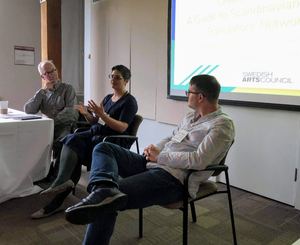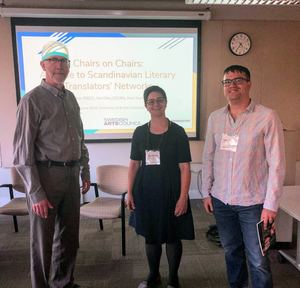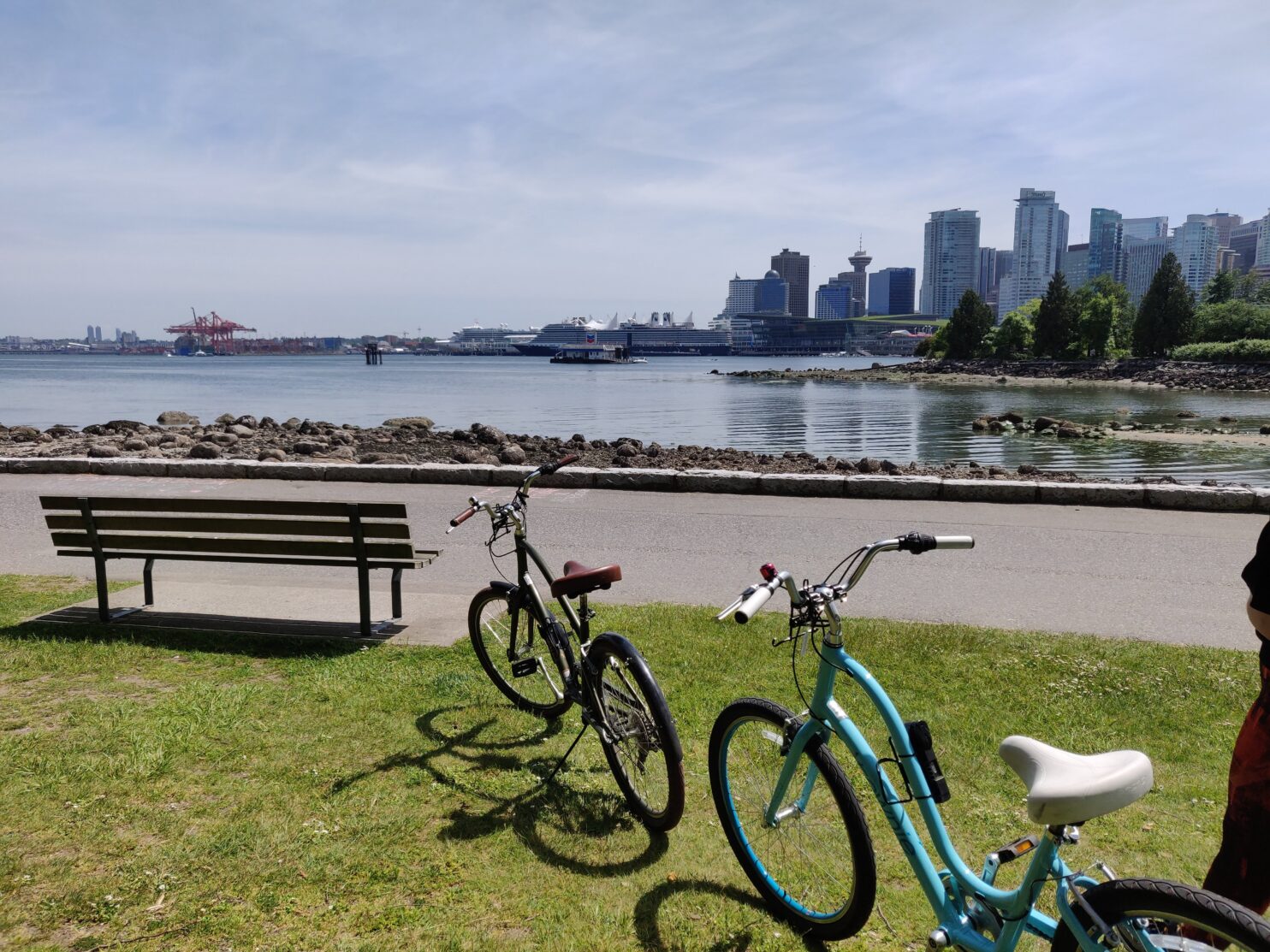June 25, 2019
A Meeting of Scandinavian Literary Translators’ Networks: Chairs on Chairs
SELTA Chair Ian Giles reports from an event in Vancouver featuring three Scandinavian literary translators’ networks.
In early June, something very exciting happened on the lush 420 acre University of British Columbia campus in Vancouver. Three Scandinavian literary translators’ networks met in one place to consider the vital role they play in the field, to discuss the trajectory of the literary translation field, and to network with fellow translators, academics and other interested stakeholders. Playing host to this was the annual Association for the Advancement of Scandinavian Studies in Canada conference, which has long been a draw for translators and scholars in North America and further afield.
 The Swedish-Eglish Literary Translators’ Association (SELTA) was founded in the UK in 1982 and has since served the interests of its members – practicing, professional literary translators – as well as promoting Swedish-language literature to the English-speaking world through its house journal Swedish Book Review. Swedish Translators in North America (STiNA) was established in 2004 to represent the interests of literary translators of Swedish working in the USA and Canada. The Association of Danish-English Literary Translators (DELT) is very much the new kid on the (Scandinavian literary translation) block, having been first established as a network in 2014 before forming a full association in 2018. The three organisations come from different backgrounds, but all fulfil important roles in representing Scandinavian literary culture abroad.
The Swedish-Eglish Literary Translators’ Association (SELTA) was founded in the UK in 1982 and has since served the interests of its members – practicing, professional literary translators – as well as promoting Swedish-language literature to the English-speaking world through its house journal Swedish Book Review. Swedish Translators in North America (STiNA) was established in 2004 to represent the interests of literary translators of Swedish working in the USA and Canada. The Association of Danish-English Literary Translators (DELT) is very much the new kid on the (Scandinavian literary translation) block, having been first established as a network in 2014 before forming a full association in 2018. The three organisations come from different backgrounds, but all fulfil important roles in representing Scandinavian literary culture abroad.
The three organisations were represented in Vancouver by Ian Giles (SELTA), Ellen Kythor (DELT), and Paul Norlen (STiNA), while Natalie van Deusen (Associate Professor in Scandinavian Studies at the University of Alberta), very kindly chaired the session, initially guiding conversation before managing questions from the audience.
Initially, the assembled panellists discussed the origins of their own organisations. While SELTA emerged through the initiative of a cultural attaché at the Swedish Embassy in London in the early 1980s working in partnership with a number of UK-based translators, it was noted that over the subsequent years it was frequently the journal Swedish Book Review that had acted as the glue of the association, while regular meetings in person and workshops also ensured regular contact and professional development. STiNA was founded in 2004 by a group of North American translators looking to replicate elements of the SELTA model and build their own network. In contrast to SELTA, STiNA does not have a house journal (although its members are also frequent contributors to SBR) and members rarely meet in person due to the large distances involved. Paul Norlen described how informal STiNA gatherings would typically take place on the fringes of bigger meetings such as ALTA (the American Literary Translators Association). DELT, meanwhile, so far sits somewhere between the two in practice, by seeking to represent translators globally, although its activities have focused primarily on the UK, Denmark and North America. In its early outings, DELT has been particularly keen to enable networking between translators and to offer hands-on workshops.
Unsurprisingly, it was clear from the discussion that the way in which members used their respective networks differed in some regards. SELTA has been making effective use of its private Google Group for members for a decade, while STiNA operates with a mailing list. Both organisations also pass on occasional work-related inquiries to the membership. DELT members communicate via its own Facebook group, encouraging most dissemination of information to take place there. All three panellists agreed that two of the most common things the networks were used for – and shared in common – were that members turned to them for assistance with particularly thorny terminological issues, and to pass on work to other members when busy. Another area where the emergence of online networks seemed to be helpful for all three organisations was in supporting emerging translators. The ability to offer advice to new members of the profession online was something all three agreed was a huge plus.
As conversation turned to the state of the industry more generally, it was noted that it is unusual to find networks like SELTA, STiNA or DELT in non-Scandinavian language combinations. This seems to be partly because of the generous support that is provided by the Nordic countries for the dissemination of their literature abroad and to assist translators from their languages, but also because there is (reputedly) a more collegial, less competitive atmosphere amongst translators of the Scandinavian languages. There was a sense as the subject was discussed that the situation for literary translation of Scandinavian languages to English remains strong, and all were hopeful it would continue to be so. It was observed that all three organisations have experienced an influx of younger and newer members of the profession in recent years and that this is promising sign that the industry is doing well.
The audience had a number of eager questions, including why books appear in British or American English (or sometimes something in between!) and who makes that decision, whether literary translators tended to solely work on literary texts or whether they also work on other ‘commercial’ texts, as well as what reading tips the panellists had. As so often happens, time had run out and the assembled audience moved on to a networking reception in the adjacent auditorium where they got the chance to discuss translation-related matters slightly more informally.
All in all, it was a very fruitful panel. Bridges were built between not only translators of Danish and Swedish, their readers, and scholars of Scandinavian Studies, but also between translators of Swedish across the Atlantic – this was the first time that SELTA and STiNA have ever met in an official capacity. There was a strong sense amongst all three participants that further collaboration in future can only be helpful to the aims of those working in the field of Scandinavian-English literary translation. Watch this space…
Many thanks to AASSC for hosting us, and to Natalie van Deusen and Christine Ekholst for their hard work in facilitating the roundtable as part of the conference programme. Further thanks go to Statens Kunstfond and Swedish Literature Exchange for their generous support of the event, as well as to the engaged and enthusiastic audience of conference delegates and guests.

